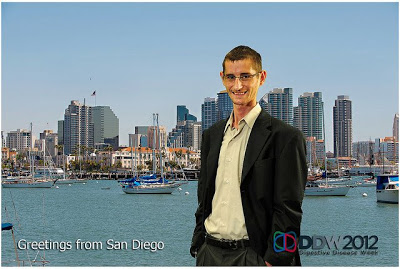I am 26 years old and have lived with short bowel syndrome, a rare intestinal disorder, and my entire life. When it comes to this disease, I’m’ an expert by experience.
 Short Bowel Syndrome is a rare disorder that affects about 15,000 to 30,000 people in the US. SBS is the result of a congenital defect (NEC, gastroschisis, and volvulus, to name a few) or trauma. Crohn’s disease is also a leading cause of SBS.SBS is a condition that reshapes the way you live. There are multiple things you become accountable for, including self-managing your condition, keeping on top of medications, frequent visits to the doctor. In many cases, SBS patients face frequent diagnostic procedures or surgeries, or both. To manage the disorder, SBS patients have to make major changes to their dietary needs to help supplement what they do not get through oral feedings; often through TPN and enteral feedings. Dietary management is one of the biggest challenges of SBS. Being around medicine my whole life was a driving factor to become a full time patient advocate and support resource for other patients like myself.
Short Bowel Syndrome is a rare disorder that affects about 15,000 to 30,000 people in the US. SBS is the result of a congenital defect (NEC, gastroschisis, and volvulus, to name a few) or trauma. Crohn’s disease is also a leading cause of SBS.SBS is a condition that reshapes the way you live. There are multiple things you become accountable for, including self-managing your condition, keeping on top of medications, frequent visits to the doctor. In many cases, SBS patients face frequent diagnostic procedures or surgeries, or both. To manage the disorder, SBS patients have to make major changes to their dietary needs to help supplement what they do not get through oral feedings; often through TPN and enteral feedings. Dietary management is one of the biggest challenges of SBS. Being around medicine my whole life was a driving factor to become a full time patient advocate and support resource for other patients like myself.
And for the past two years, I have attended Digestive Disease Week, a major conference held each May. Digestive Disease Week brings together over 15,000 gastroenterologists, industry professionals, medical students, and vendors from all over the globe. Many of the physicians I met this year were practicing overseas. Short Bowel Syndrome is still a rare condition, so there are not many experts on the condition. Most clinical experts are seasoned physicians and surgeons, but not all. Also at the conference are some patients like myself, who live and breathe SBS every day.
I had many opportunities to talk with physicians at the recent conference, and our conversations usually started with them saying, “Why are you here?” When I explain that I am advocate for SBS research and awareness, and an SBS patient, their attitudes change, and they became receptive to me and my mission at this conference. They also felt the need that SBS needed to become more known in the GI community and that there is no real support for those patients and caregivers. Hearing those sentiments encouraged me that I’m on the right path with the foundation I started two years ago.
Some physicians I have come to know went as far to tell me that I have taught them more about my own disease then what they knew. Knowing that they learned new insights about the rare disease was empowering. Most physicians study a disease process a few times in medical school and then will only see a case or two in their careers, one GI told me, unless they really specialize in a particular condition.
Not all physicians I have met at medical conferences were we as welcoming. At a prior conference, I was talking with a physician about the foundation, and this physician dismissed the impact that we were making to the SBS community. Helping those with SBS, the doctor told me, should be left to trained medical professionals. My response was, “Even though I don’t have a medical degree, it doesn’t’ mean I can’t learn from my own experience and apply it to real life situations.” Patients and caregivers are just as knowledgeable about themselves and their conditions as their own treating physician. It just is not frequently viewed that way.
Until you have actually lived with a condition like SBS, you have no idea what you are dealing with, medical degree or not. It’s a completely different ballgame when you live with a chronic medical condition. Many things in your life change, some good-some bad. One downside to living with a chronic condition is that there is always some sort of “fear factor” involved, wondering what could happen after one infection too many, and multiple things can go wrong from undergoing surgeries and procedures.
On the plus side, living with a chronic condition allows the patient to understand themselves better than they might think they do. They start learning techniques which allow them to live a productive life, and how to effectively communicate with their healthcare provider. All of these things are important to a healthy lifestyle. There will always be stress and worry, but you can limit the effect it has on you. I have met a lot of SBS patients like me who want to study the condition and understand it better, so they can be more efficient with their lives and time.
As a patient advocate, I know that it is because of healthcare providers that patients like me continue to thrive. But more healthcare providers can benefit from listening more to their patients. Doctors can learn from the experts who come into their offices and hospitals every day. They would then have a better understanding and the full picture of the patient experience that we deal with every day.
Andrew “Andy” Jablonski, of Lincoln, NE, founded the Short Bowel Syndrome Foundation in December 2010 as a resource for SBS patients and their families.www.shortbowelfoundation.org
